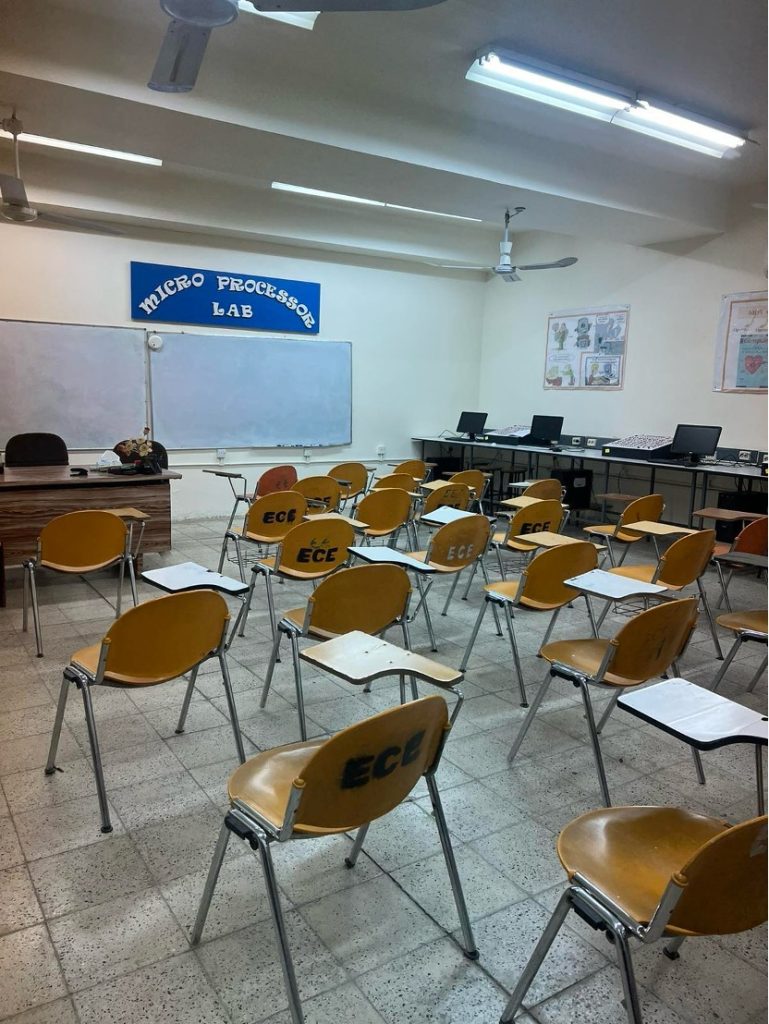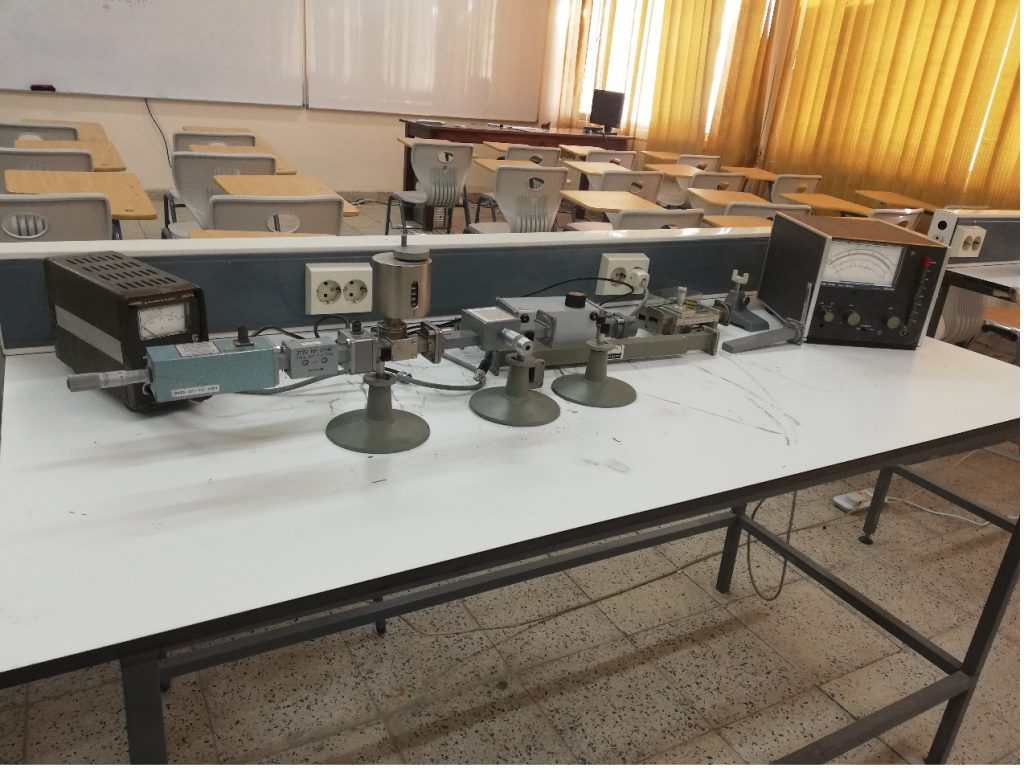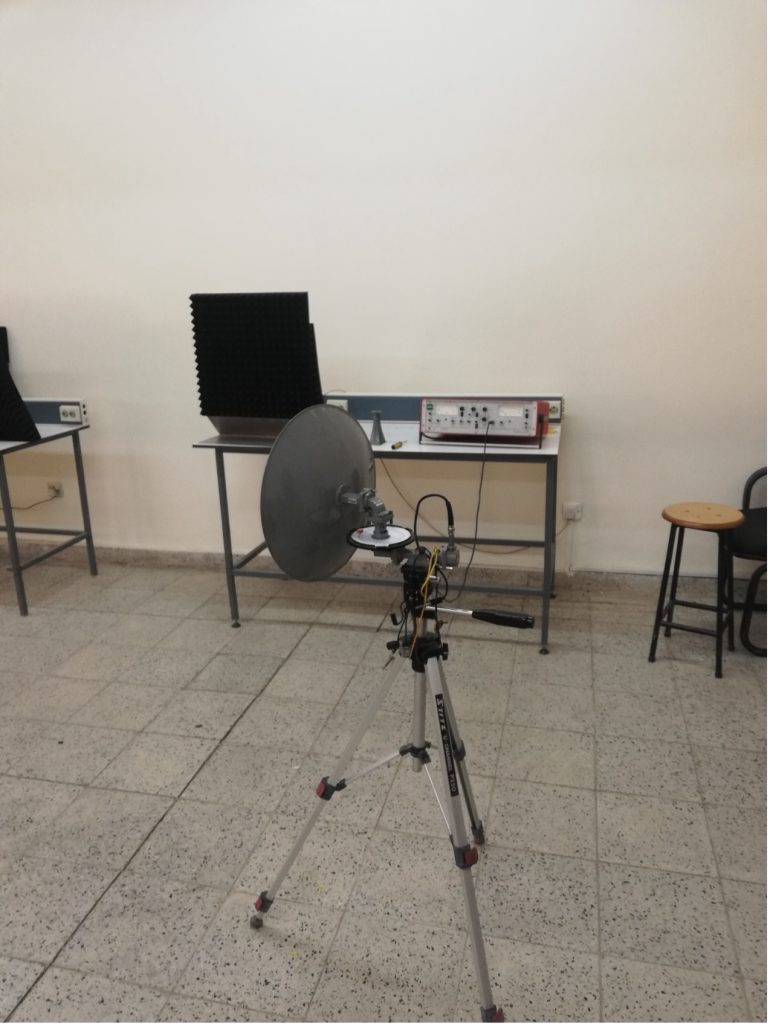Computer Lab.
The laboratory aims to prepare an engineering staff capable of analyzing practical problems, drawing diagrams that help them solve the problem easily and efficiently, and then writing the necessary code to solve the problem using the C++ object-oriented programming language.
Microprocessor Lab.
The laboratory aims to prepare an engineering staff who has complete knowledge of the parts of the microprocessor and the mechanism for implementing programming instructions within the microprocessor, and thus has the ability to write intermediate-level programs using the programming languages of the microprocessor.
Electronics Lab.
The laboratory aims to prepare an engineering staff who is familiar with designing basic electronic circuits, connecting them, and identifying the desired results from them. The laboratory was provided with the necessary equipment so that the undergraduate students could conduct experiments related to connecting, designing, and analyzing various electronic circuits.
Communications Lab.
The laboratory aims to prepare an engineering staff which is familiar with designing and connecting the necessary circuits used in communications, the undergraduate students practically study experiments related to sending and receiving signals and analyzing these signals, and thus the student is able to learn the basics of communications. The laboratory was provided with the necessary equipment for this purpose.
Electronics and Networks Lab.
An engineering laboratory helps the student understand electronic components such as resistors, inductors, capacitors, diodes, transistors, and integrated circuits. It focuses on the student’s use of special measuring devices such as the oscilloscope, the signal generator of both types (DC and AC), and the multimeter. It also acquaints the student with the assembly of computer parts. Of various kinds. In this laboratory, the student acquires skills in welding and processing, giving him the ability to build simple electronic circuits and develop them during the higher stages of study.
In this laboratory, the student learns about methods for calculating the electrical voltage needed for various construction units (houses, residential complexes, factories, schools, etc.), discusses the various electrical construction methods, and is familiarized with the different types of electrical circuit breakers.
Microwaves Lab.
The microwave laboratory in the Department of Electronic and Communications Engineering aims to train undergraduate students in the department the basic of microwave circuits and devices that are used in wireless communications systems and radar, such as signal generators (oscillators), waveguides, and antennas. This laboratory is distinguished by being one of the unique laboratories of its kind in Iraq, as students in the third and fourth stages have the opportunity to study and carry out practical experiments for wireless communications systems and radar that operate in the high-frequency range (more than 10 GHz), which enhances their understanding of the theoretical aspects of electromagnetic propagation topics, Antennas and microwaves. In addition to undergraduate students, this laboratory also contains advanced equipment designated for researchers and graduate students in the department for the purposes of manufacturing and measuring electronic circuits and advanced systems designated for processing radio frequency (RF) signals and printed antennas.
Researches and Projects Lab.
The Projects Laboratory in the department aims to provide devices and equipment needed by postgraduate students in their research, and also needed by fourth-year students to perform their graduation projects.





















